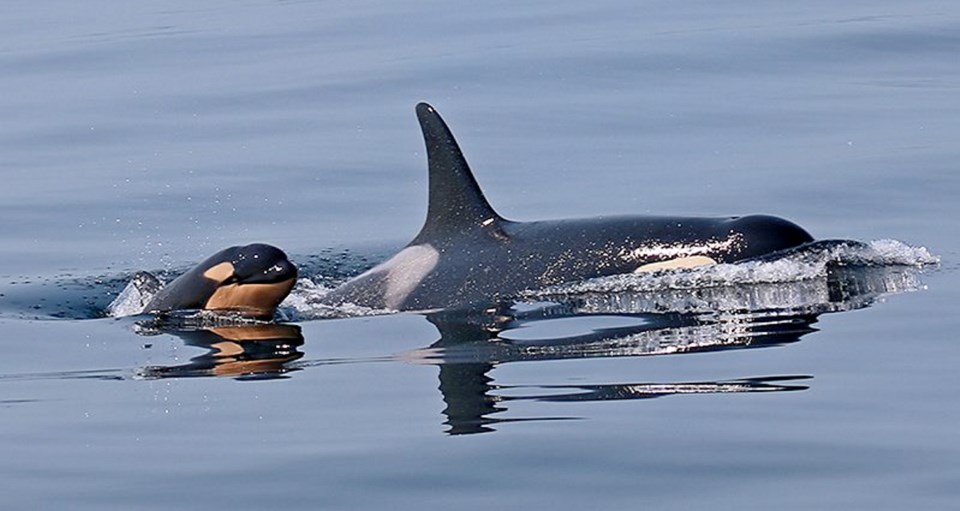A killer whale calf born about seven weeks ago in the Salish Sea off the south coast of B.C. has died, says Orca Conservancy, a Washington-based volunteer group working to protect orcas and their habitat.
Called L120, the calf was celebrated as the first born in the area since 2012, and its death leaves 78 southern resident killer whales in a declining population considered endangered under Canada’s Species at Risk Act.
“I’m pretty bummed,” said Shari Tarantino, president of the conservancy.
The group had heard from scientist Ken Balcolm of the Center for Whale Research in Friday Harbor, Washington, that the calf had been absent for nearly a week. The mother, L86, was photographed Friday, Saturday and Monday without the calf and it was not seen with its brother or aunt.
“The whole family is there, except the baby, so it’s gone. They don’t stay away from their families that long,” Tarantino said.
Balcolm said the calf would have weighed about 180 kilograms.
Dr. Peter Ross, a marine toxicologist at the Vancouver Aquarium, said the death left him “discouraged but I won’t say panicked.” Thirty per cent of orca calves die before their first birthday, so the death could have been from natural causes, he said.
However, L120’s mother is one of only 18 female breeding southern resident killer whales.
For every southern resident orca, there are 100,000 people in B.C. and Washington, he said, which makes it imperative not to harm them by what we put into drains and toilets. These orcas are among the world’s most PCB-contaminated marine mammals as well as the most studied, he said.
L120 was a sibling of calf L112, named Victoria and born off the Ogden Point breakwater in 2009. It was killed by bluntforce trauma of unknown origin in the Juan de Fuca Strait in 2012.
A healthy male was born in 2005.
Tarantino said L120’s death could have been due to an inadequate milk supply, given that lactating females need up to four time more calories and there weren’t enough available Chinook salmon.
Other major dangers include noises from seismic testing and ocean traffic that impede the orcas’ communication, Ross said.



